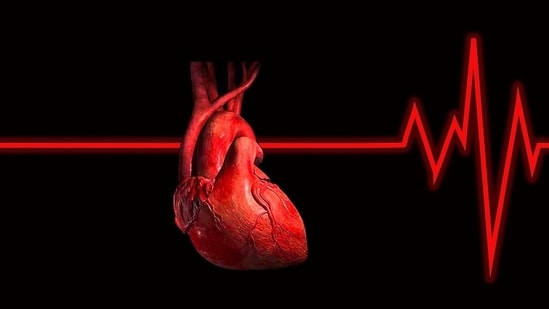In an interview with HT Lifestyle, Dr Tanmai Yermal Jain, a cardiologist at Manipal Hospital in Kharadi, Pune, emphasised the importance of taking chest pain seriously, as it can be a symptom of a heart attack or other cardiac issues. According to him, chest pain is one of the most common complaints that leads individuals to seek medical attention. Also read | Cardiologist explains 10 signs of heart disease you ignore but should not: Irregular heartbeat, swollen feet, jaw pain
However, not all chest pain is related to heart disease, and it can be caused by alternatives like gas, acidity, or muscle strain. He said, “One of the most common present complaints that leads individuals to seek medical attention is chest pain. Many patients complain of non-cardiac chest pain, and it is common and reasonably simple to rule out heart disease in favour of alternatives like gas, acidity, or muscle strain, particularly in young patients or those without any heart disease risk factors.”
He added, “While assumptions and inaction may occasionally — and perhaps rightly — be seen as harmless events, there are other instances in which they may have potentially harmful repercussions.”
‘Patient needed bypass surgery right away’
Sharing an example, Dr Yermal Jain said: “Over the course of several weeks, a middle-aged man complained of chest pain at multiple hospitals. The patient had a long history of chest pain, which he thought was caused by stress or acidity. Antacids were prescribed to the patient by the doctors. Heart disease was not taken into consideration because of the persistent chest pain. The patient eventually arrived at the hospital in a state of distress. After an evaluation, it was determined that the patient needed bypass surgery right away because of severe coronary artery blockages. A significant lesson from this instance is that misdiagnosis can be fatal, and not all chest problems are harmless.”
What are the causes of inaccurate diagnoses?
According to Dr Yermal Jain, a few factors can lead to misdiagnosis of chest pain associated with the heart:
⦿ Without symptoms
“There are numerous ways to experience chest discomfort, including tightness, heaviness, burning, or a dull ache. These sensations are often confused with anxiety, muscle soreness, acid reflux, or indigestion,” he said.
⦿ Unusual symptoms
Dr Yermal Jain added, “The typical excruciating chest pain associated with a heart attack does not affect everyone. Women, the elderly, and people with diabetes may experience nebulous symptoms such as weariness, moderate pain, nausea, or dyspnea.”
⦿ Low suspicion index in low-risk populations
He also said, “When chest pain occurs in younger people or those without heart disease risk factors, it is frequently assumed that the “problem” is not related to the heart. The goal is to think about a cardiac issue as soon as possible and employ the right tests to get a diagnosis in a timely manner.”

Dangers of ignoring heart-related causes
Dr Yermal Jain said that until an incident occurs, such as a heart attack, coronary artery disease (CAD) is often silent: “If CAD is not identified quickly, the disease process progresses and can cause serious heart damage or even abrupt cardiac arrest. After receiving a false diagnosis of acidity, a person may continue living their life without realising the potentially fatal effects of coronary artery constriction.”
“An ultimately fatal outcome could be avoided by identifying CAD and taking appropriate action, such as performing bypass surgery later or using angiography and medical care. By restoring blood supply to otherwise compromised regions of essential heart muscle, a bypass can improve survival and symptoms,” Dr Yermal Jain added.
What is the reason for concern?
According to Dr Yermal Jain, cardiac chest pain usually appears different from indigestion-related chest pain, which happens after meals, gets better with antacids, and does not worsen with exertion. He explained:
⦿ Occurs when there is mental stress or physical exercise.
⦿ Resting or taking an antacid did not help
⦿ Linked to perspiration, lightheadedness, or dyspnea
⦿ Radiates to the arm, jaw, neck, or shoulder
He added, “Once more, a proper cardiac screening should be performed for any inexplicable, recurring, or prolonged chest pain (longer than two weeks). General practitioners and primary care physicians have a fundamental responsibility to identify patients at risk early. They can raise concerns early by taking a thorough medical history, performing a physical examination, getting an ECG, and running a few quick blood tests. Patients at high risk should not wait for additional testing, such as coronary angiography or echocardiograms.”
“Instead of waiting until cardiac disease manifests clinically, cardiologists recommend early screening and methodical examination. This is particularly true for middle-aged people with a number of risk factors, including diabetes, high blood pressure, high cholesterol, smoking, and a family history of the condition,” Dr Yermal Jain concluded.
Note to readers: This article is for informational purposes only and not a substitute for professional medical advice. Always seek the advice of your doctor with any questions about a medical condition.
